Being unhappy with your own body is challenging. Many people go through periods of time where they struggle with body-image issues. Struggling with insecurities related to one’s body can sometimes feel inescapable. However, there are many ways to work on body insecurities that can help alleviate the burden of fixating on one’s appearance.
External Forces
The first step in conquering one’s body-image concerns is to recognize some of the external forces that drive body-image worries for people.
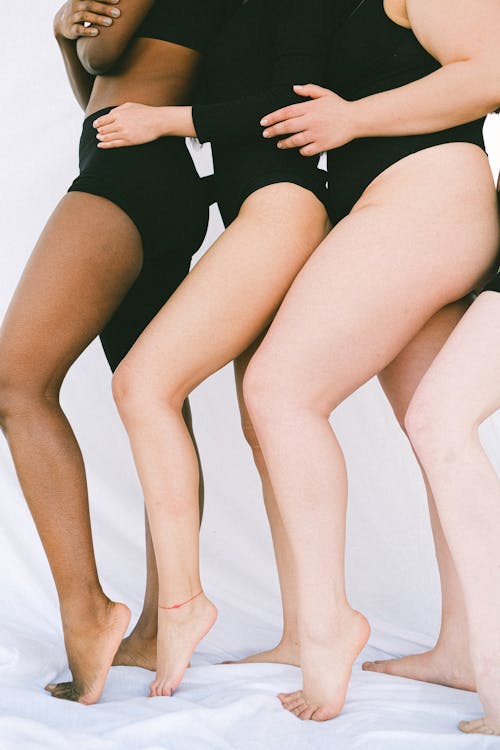
Cultural Preferences
Different cultures glamorize different body types. For instance, Filipino culture values fatness because it is a symbol of wealth and strength. Western culture, on the other hand, glamorizes thinness in women and strength in men because of the West’s Eurocentric ideals of beauty.1 Cultural preferences play a huge role in defining the “ideal” body type. While one culture may find thin bodies to be the ideal, another may find this unattractive. Beauty is entirely subjective, so there is no real way to define a “good” or “bad” body.
Social Media
The rise of social media has put an emphasis on the scrutiny of both men’s and women’s bodies. Social-media health bloggers with huge followings and vast influence are able post photos and videos that reach large audiences. Under the guise of “fitspiration,” these influencers post enhanced photos that display idealized versions of female and male bodies.2 These unrealistic depictions of the body are then reproduced all over social media and enforce improbable body standards.
The Media
The media strengthens and influences these unrealistic ideals through its specific casting of models and actors and through the messages it delivers. In a study published by the National Eating Disorders Association, researchers concluded that 1 in every 3.8 television shows in the West communicate an “attractiveness message.”3 The purpose of an attractiveness message is to inform viewers of what is or is not physically ideal in the eyes of media producers. These attractiveness messages portray extreme thinness as ideal and more desirable than a normal, healthy weight.3 Exposure to these attractiveness messages impose unrealistic body standards for people with vastly different body types.
The Fitness Industry
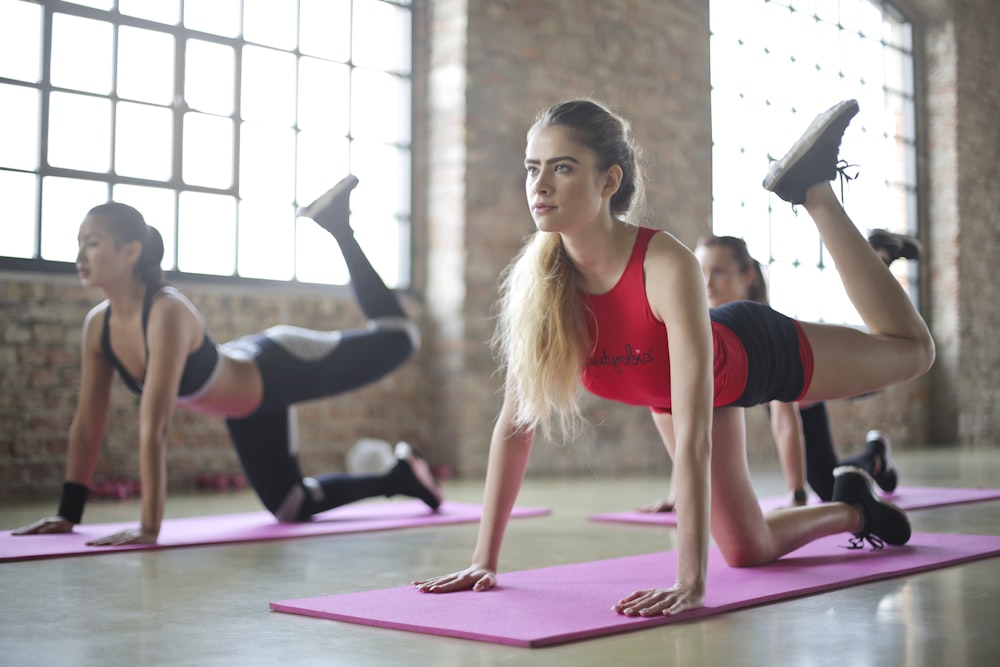
The fitness industry is a multi-billion dollar industry aimed at improving the health of individuals. However, because the fitness industry advertises the use of fad dieting, fat-burning pills, and waist trainers, the industry pushes an agenda that strays away from health improvements.4 Furthermore, billboards and advertisements that promote workout plans and healthy living display photos of ultra-thin females and muscular men, which leads people to associate healthy living with these body types even though this standard is unrealistic.4 The primary focus and interest of the diet/fitness industry is profit. It is not concerned with individual well-being: It disregards the fact that genetics influence body type; it even promotes products that are ineffective in the long term, sometimes having deleterious effects.4
Body Image Issues Affect Both Women and Men
Both women and men are affected by body-image insecurities. Women’s bodies are under constant scrutiny by the media, the diet and fitness industry, advertisers, social media outlets, peers, and the self. Through different avenues, every day, women are sent messages about their bodies. It seems that a woman’s body can never be just right.
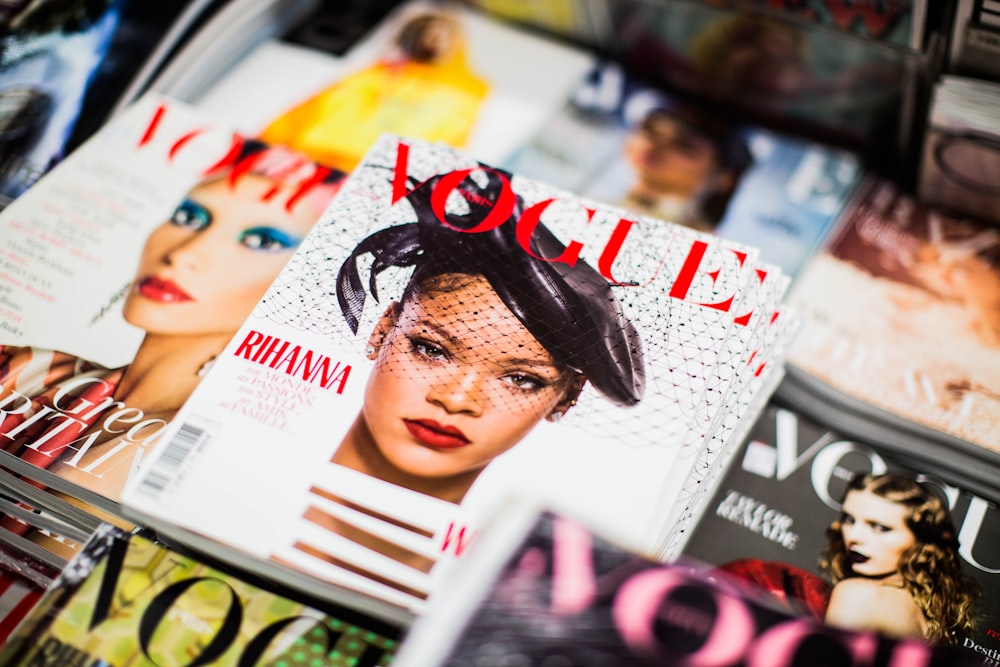
The media tells women that cellulite is condemnable and that only a fat-free body is acceptable. In reality, even thin, active women have cellulite. The images presented in magazines, advertisements, and other forms of media have been digitally enhanced, airbrushed, and altered in order to give the illusion of perfection.5 The purpose of these images (especially when it comes to advertisement) is to make women feel deficient, so they will want to buy enhancement products. In this way, women are programmed by the media to have an altered sense of body image. 5
In addition to weight concerns, women often worry about breast size as a measure of attractiveness. There is no current evidence that suggests that individuals base any form of physical attractiveness on the perceived breast size of a woman.5 Breast size for women is another way for the surgical modification and the lingerie industry to profit off of the insecurities of women.

Body image issues are not only a concern to women. The “Adonis Complex” is a term that describes how men can also form a negative body image. Adonis, from Greek mythology, was half-man, half-god. He had a perfect body and was supposedly so beautiful that even Aphrodite, the goddess of love and beauty, was amazed.6 The Adonis Complex suggests that men may compare themselves to unobtainable standards and become very critical of their bodies.6
The Fitness industry has a particularly detrimental effect on the body image of men. Men with various physical builds and genetic makeup are told that attractiveness is based on height and muscular body build. This narrative is reproduced in advertisements for fitness programs and by male models. Men often feel inadequate and some even turn to body enhancing drugs which have detrimental effects on the body.7
Men often concern themselves with penis size as a form of body insecurity. The amount of pleasure a person feels during sex is not necessarily dependent on the size of a male’s penis. In a study published in the BMC Women’s Health Journal, 50 sexually active females who had two or more partners were interviewed about their sexual preferences. Almost all females reported that penis length did not make any difference in sexual pleasure.8 Body image concerns for men are driven by culturally produced ideals with no factual basis.
Body-Image Issues and Sex
Sometimes body image can affect people’s sex lives. Thinking about one’s own body during sex can negatively affect one’s performance.11 Females often focus on their breast size, vaginal appearance, and body shape during sex. Focusing on these things during sex is called spectatoring, and it can decrease arousal which can lead to painful sex due to a lack of lubrication.11 The Cincinnati Psychotherapy Institute cites that women who have poor body image are more likely to refrain from initiating sex as often as women who do not have poor body-image issues.12 The internal monologue in females’ minds can cause sex to be a source of extreme anxiety.

Body-image issues can be debilitating for males during sex as well. Males tend to focus on penis size during sexual encounters and believe that females base their sexual experience on the size of the penis. This anxiety can lead to difficulties with arousal and maintaining an erection. The internal dialogue can then become a cycle of sexual anxiety that causes a male to experience anxiety that may eventually lead to erectile dysfunction.11
Studies have shown that people focus more on the pleasure of sex and connection to their partners rather the judgement of their partner’s body during sex.11 This means that a person focuses more on their own body-image concerns than do their partners. Once people realize that their partners are probably unaware or are not bothered by their body concerns, sex can become more enjoyable and less anxiety inducing. It is important to try to counter the negative body-image dialogue in one’s mind.
How to Counter These Negative Messages
How can individuals develop a positive sense of self, despite the criticism coming from society? The remainder of this article will provide a comprehensive list of the ways to help overcome body-image insecurities.
Follow the Three A’s
Experts from the National Eating Disorder Association suggest that women adopt the “three A’s” in order to embrace positive, self-loving behaviors.
- Attention: Listen for and respond to internal cues, such as hunger, satiety, and fatigue. Basically, get back in touch with your body and its signals. A person’s body is excellent at regulating and letting a person know what it needs in order to perform optimally.9
- Appreciation: Appreciate everything your body allows you to do and the pleasure it provides. It is because of your body that you can engage in the activities you love and enjoy what life has to offer.9 Realize and remember that! It may be wise to write a list of all of the things you love about your body, not only its physical characteristics but also its abilities. Think of all the activities you love to do. Each time you look in the mirror, think about at least one of the things on that list. Smile to yourself as you remember all your positive assets.
- Acceptance: Accept what you have rather than long for what you do not. Much of your body composition is predetermined by your genetics. While most people ascribe to the idea that there is a magic weight that indicates health, healthy body weight is simply the weight a person naturally returns to after healthy and non-compulsive eating as well as light and healthy exercise.9 Blood pressure, heart rate, and cardiovascular endurance are much better indicators of physical fitness than weight, and body composition can more accurately let you know if your body is healthy.
Create a Positive Relationship With Food
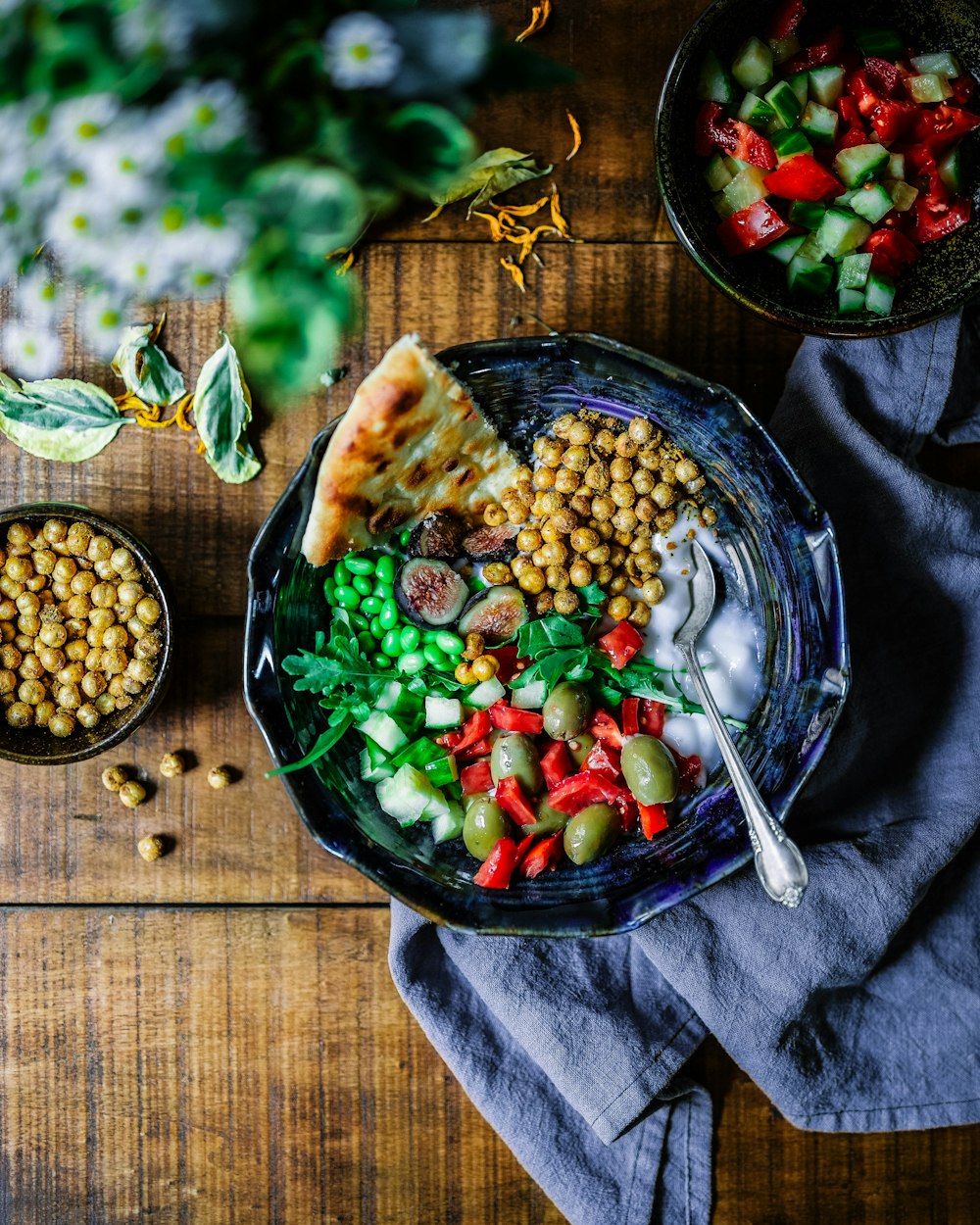
Food should not be associated with negative behaviors. The human body needs food in order to survive and perform to its fullest potential.9 This means that starving oneself can cause the body to alter one’s mood, ability to think properly, and ability to perform tasks. Food is vital to one’s survival and should never be used as a tool for punishment.
While undereating is never healthy, overeating to gain body weight rapidly is not healthy either. The process of bulking, or adding body mass at an accelerated rate, can increase the risks of type 2 diabetes and bone marrow connector damage.9 It is important to feed one’s body when the body craves sustenance; however, feeding the body when it does not need food can cause damage. Creating a positive relationship with food can help the body become more regulated and healthy.
In order to create a healthy relationship with food, consider planning out healthy meals in advance so that you don’t have to worry yourself about what to eat or skip a meal entirely. It’s important to be balanced in your diet. This means that you shouldn’t beat yourself up for treating yourself to a unhealthy food or snacks every once in a while. As long as you give your body the proper nutrients it needs, adding in a snack or two is alright.
Stop Comparing Yourself to Others
Everyone’s genetic makeup is different and almost everyone struggles with some sort of body-image issue. When you compare yourself to another person, you are comparing two completely different genetic makeups to one another. In addition, you are entirely ignoring any body-image insecurities that the other person may have. Encourage yourself to become the best version of you by keeping as healthy lifestyle that is reasonable for you. This will help you to realize that the best version of you is different from the best version of another person.9
Pick Up a Healthy Activity That You Enjoy
Try not to exercise for the sole purpose of losing weight. Find an exercise or activity that is enjoyable for you. This could mean taking a daily walk with a friend, going for a swim, or maybe even trying out a novel activity, such as an aerial silks class. When you find a physical activity that you genuinely enjoy doing, then getting up and moving around can be something you look forward to doing, and this can make you feel energized and happy. Studies show that becoming more active boosts people’s moods because the surge of endorphins created by exercising makes people happy.10 Find a healthy activity that you are excited about. Feeling happy in one’s own skin allows people to disregard body insecurities.
Compile a List of Everything That You Love About Yourself
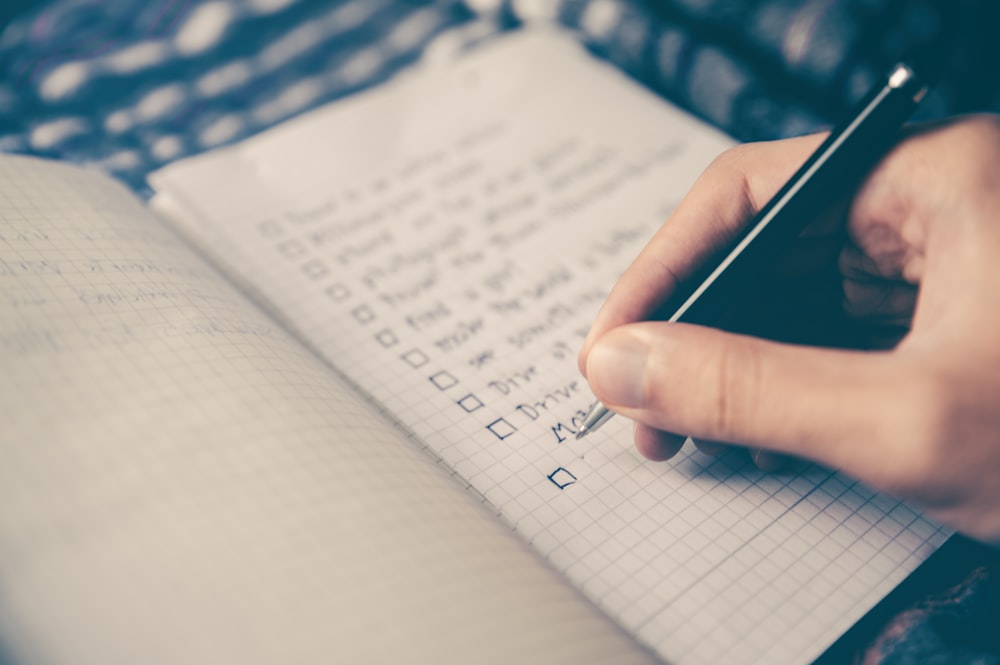
The list can include both physical and non-physical traits. Think about things that others have complimented you on. It is important to focus on all of the positive things about oneself because it is very easy to over analyze the few things that a person dislikes about themselves. When you realize how many things about yourself that you are happy with, then everything else can seem trivial and you can focus on the traits that you and others appreciate about your body.9 Compiling a list about all of the things you love about yourself is a wonderful way to turn the negative thoughts you may have about your body into positive ones.
Avoid Measuring Your Self-Worth on Your Physical Appearance
Your creativity, determination, values, intelligence, personality, friendships, and relationships are far more important aspects of your self-worth.9 Picking up hobbies and activities that make you feel good about the work that you are doing can help to boost your self-esteem. Joining a fun class or club or starting to volunteer can all be great ways to improve your insecurities because you can focus your attention on a cause for greater good. When you begin seeing yourself as an important contribution to a class, volunteer effort, or club, you will realize that there is so much more to base your self-worth on than on your physical appearance.
If you are currently in school, it may be beneficial to check out all of the on-campus organizations to start seeing what you may be interested in. When you find people with the same interests as you, they may even be able to show you more opportunities to get involved with something you are passionate about. If you are not currently in school, a great way to get involved in something is to start volunteering with a local organization. Many animal shelters and disaster relief organizations offer volunteer positions. If you live in the United States, click here for a website that can match you with a volunteer position.
Stop “Fat Talk”
Fat talk is when a person repeats self-destructive thoughts out loud in the hopes that someone will counter them. This becomes destructive because after a while, people stop believing honest protests and perceive their own hurtful comments as true.9 In addition, this type of behavior becomes unpleasant to those around who have to constantly reassure fat-talkers.
Instead, consider talking openly to a trusted individual, whether that be a friend, family member, or mentor, about your insecurities so that they can offer assistance, advice, or even personal stories about times they have struggled too. When you talk openly about your insecurities to someone, they may be able to help you feel like you are not alone and that there are ways to overcome self-destructive thoughts.9
Surround Yourself With Positivity
Make bonds with people who are positive. Surrounding yourself with others who are forward-thinking and happy will help lift you up.9 Creating relationships with positive people can help keep you on track with your physical and emotional health goals. Whether you need a workout buddy or just someone to vent to, positive human interaction is vital to becoming a happy individual.9
Treat Yourself
Do something nice for your body once in a while to show it love. Play some relaxing music, read a book, lay out in the sun, or take a bubble bath. Relaxing in your own skin and giving your body the chance to take a deep breath is very important.9 Sometimes indulging in a fun bake session with friends or heading out to get some ice cream can also be a fun way to treat yourself. Others may enjoy a face mask or a massage to set a relaxing mood. Treating yourself and your body can help your body feel loved once in a while for all the things that it does for you. When you give your body rest, this can keep you motivated to continue living a healthy, active, balanced, and positive lifestyle.9
Seek Help When You Need It
Sometimes a person’s negative thoughts can be overpowering. If you feel that you need to discuss your relationship with your body with a professional, then don’t hesitate to connect with a therapist or councilor. Sometimes discussing things with an unbiased third party can help put things into perspective and can help improve body positivity.9 In addition, clinical help can offer you many different resources to help you find ways to cope with body-image issues. Many people go to therapy because of their body-image concerns and are able to discuss their worries with a trained professional. Ten percent of individuals struggling with eating concerns and body-image issues seek out professional help, but many more are encouraged to do so.3 Therapists and councilors are trained to help people with an array of concerns they may have, so there is no reason that you should hesitate to connect with one.

Concluding Remarks
Having a negative body image is like having your own worst critic in your mind on a daily basis. Having body-image issues happens when a person is uncomfortable and unhappy in their own body. Everyone’s bodies are different. Although the external forces in society may lead you to believe that there is only one ideal body type, these ideals are entirely subjective. It is important to take into account all of the ways this article discusses how to overcome negative body image and to try to implement them into your daily life if you struggle with body-image issues. It is important to celebrate your body and to overcome body-image concerns so that you can return to being comfortable with your body and be able to perform daily tasks with ease and happiness.
References
- Townsend, Claire, Julie Y. Takishima- Lacasa, Janet D Latner, Andrew Grandinetti, and Joseph Keawe‘aimoku Kaholokula. (2014). Ethnic and Gender Differences in Ideal Body Size and Related Attitudes among Asians, Native Hawaiians, and Whites. Hawaii Journal of Medicine and Public Health. Vol. 73, No. 8.
- What Does the Research Tell Us About Social Media and Body Image? (2017). National Eating Disorders Association.
- Media Influence on Body Image. (2016). Mirror Mirror Eating Disorder Help.
- Looze, Ralph. Body image problems in health and fitness industry. (2017). Europe Active.
- Roeder, Amy. (2015). Advertising’s Toxic Effect on Eating and Body Image. Harvard School of Public Health.
- Tracy, Natasha. (2014). Adonis Complex: A Body Image Problem Facing Men and Boys. Healthy Place.
- Carter, Joe. (2014). 9 Things You Should Know About Male Body Image Issues. The Gospel Coalition.
- Eisenman, Russel. (2001). Penis Size: Survey of female perceptions of sexual satisfaction. BMC Women’s Health. Vol. 1, No. 3
- Developing and Modeling Positive Body Image. (2017). National Eating Disorders Association.
- Dfarfud, Dariush, Maryam Malmir, and Mohammad Khanahmadi. (2014). Happiness & Health: The Biological Factors- Systematic Review Article. US National Library of Medicine National Institutes of Health. Vol. 43, No 11.
- Fallon, April E., Rozin, Paul. (1995) Sex differences in perceptions of desirable body shape. Journal of Abnormal Psychology. Vol 94, No 1.
- Monroe, Val. (2001) Are Your Insecurities Ruining Your Sex Life? Oprah.com.
Last Updated: 12 March 2018.
